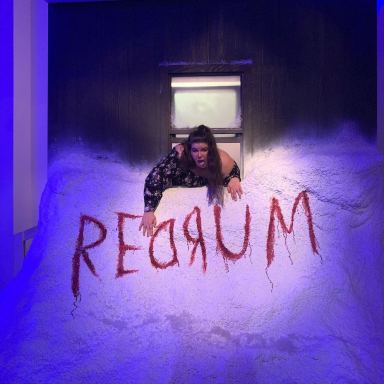33 Scary Climate Change Movies
Because temperatures are now rising faster than any period we have previously measured, it is difficult to estimate what will happen in the near future.

“Climate change” refers to the long-term shift of global weather patterns caused by human industrialization, mostly burning fossil fuels. Currently, we are experiencing climate change as global warming and the rate of rising average temperatures has increased in speed since 1970. Because temperatures are now rising faster than any period we have previously measured, it is difficult to estimate what will happen in the near future.
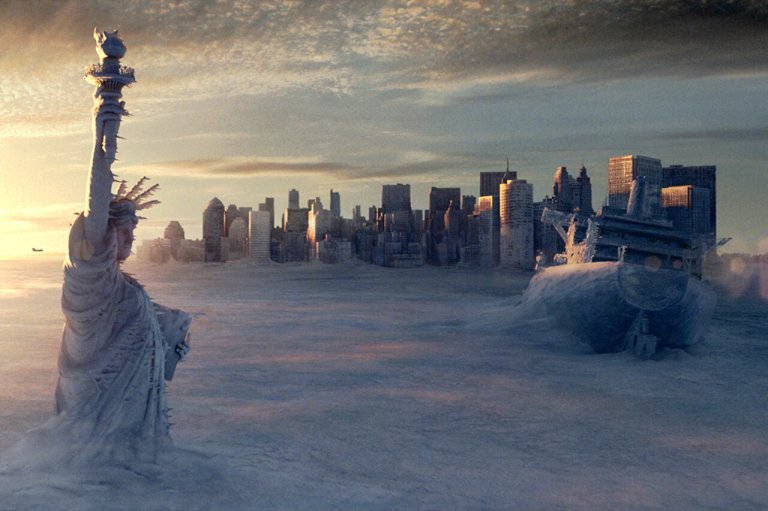
Films have always explored the frightening possibility of living in a dystopian future and nature has been an antagonist in horror since The Lost World (1925). The subgenre of “eco-horror” is made up of films where the scares comes from the environment, especially in cases where human interference has caused nature to “fight back”, like in Alfred Hitchcock’s The Birds (1963) and Steven Spielberg’s Jaws (1975). Eco-horror can include creature features, shark attack movies, sea monster movies, scary movies about tornados, pandemic/outbreak movies, and earthquake movies. Horror movies about climate change are an emerging trend in eco-horror as global warming impacts our lives and is increasingly featured in news media.
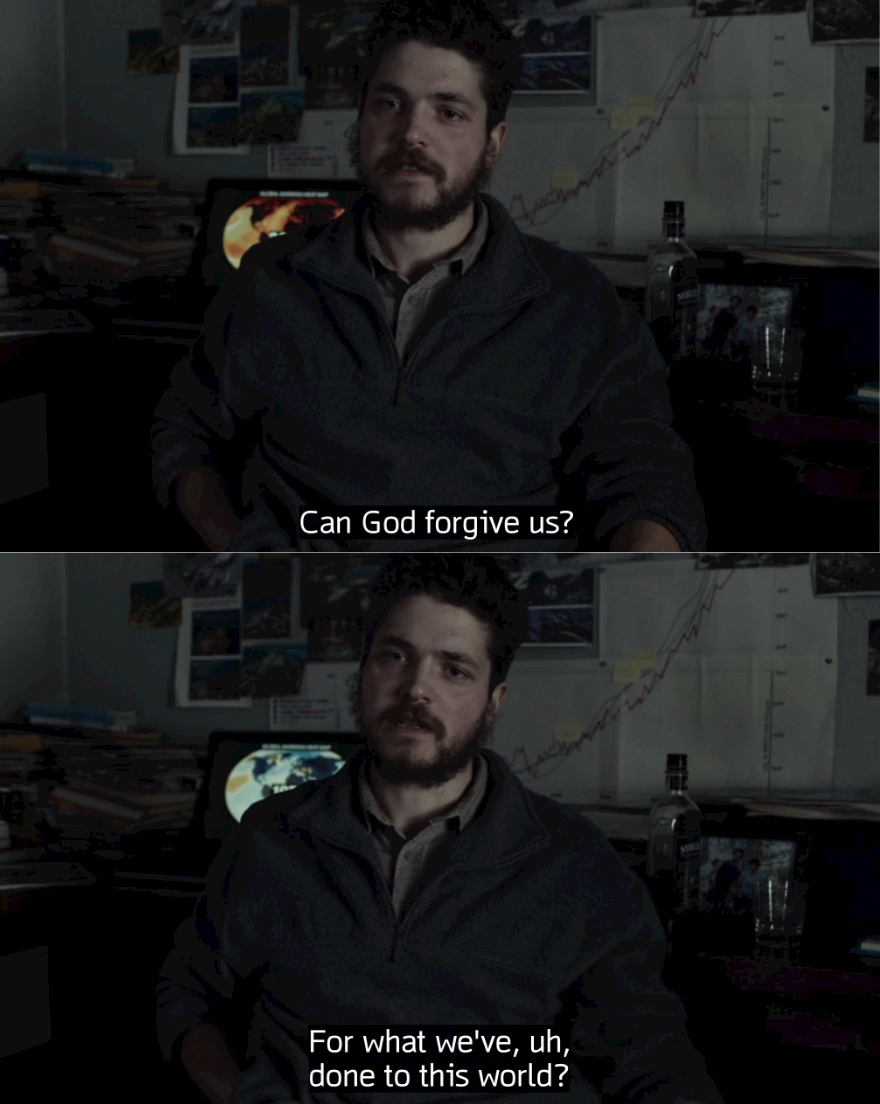
This list catalogs scary climate change movies. The criteria we’ve used for “scary” is that the films use climate change as the reason the characters find themselves in a dystopian setting, have thrilling scenes in which the antagonist is natural phenomena caused by climate change, or the film discusses climate change and is just unsettling in nature (see First Reformed below). Here are the best scary climate change movies:
Soylent Green (1973)
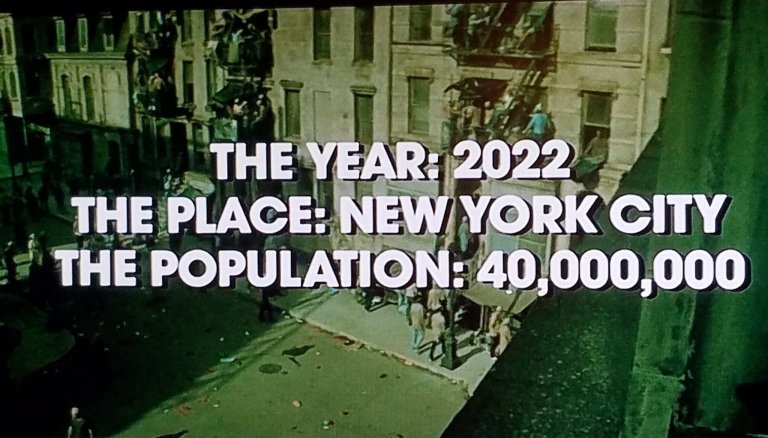
A dystopian thriller set in 2022 where, as a result of climate change and overpopulation, there are global shortages of food, water and housing. The wealthy elite can afford to meet their basic needs and live sheltered in highly secure buildings while everyone else lives in squalor and eats processed wafers called Soylent. A new variety of wafer called Soylent Green is more flavorful and nutritious than the other varieties. When a board member of the Soylent corporation is murdered, a detective (Charlton Heston) comes to believe that the motive for murder was to keep a bombshell secret about Soylent Green from the public.
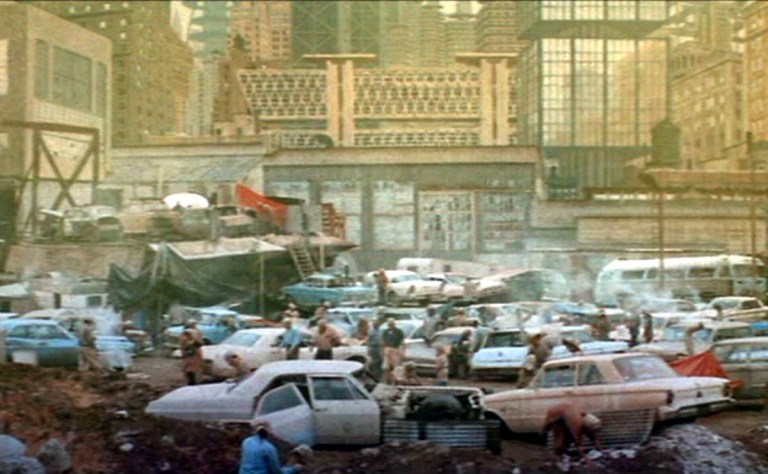
Split Second (1992)
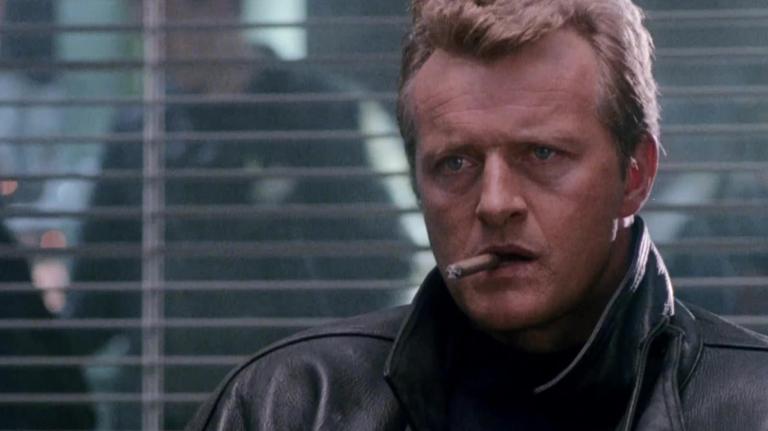
A sci-fi action horror movie set in 2008 where climate change has resulted in areas of London being constantly flooded. A rookie (Neil Duncan) and a cynical veteran cop (Rutger Hauer) investigate a series of bizarre murders in which the killer seems to absorb the DNA of his victims. When the two cops finally track him down, the killer’s identity is revealed in a wild twist.
The Arrival (1996)
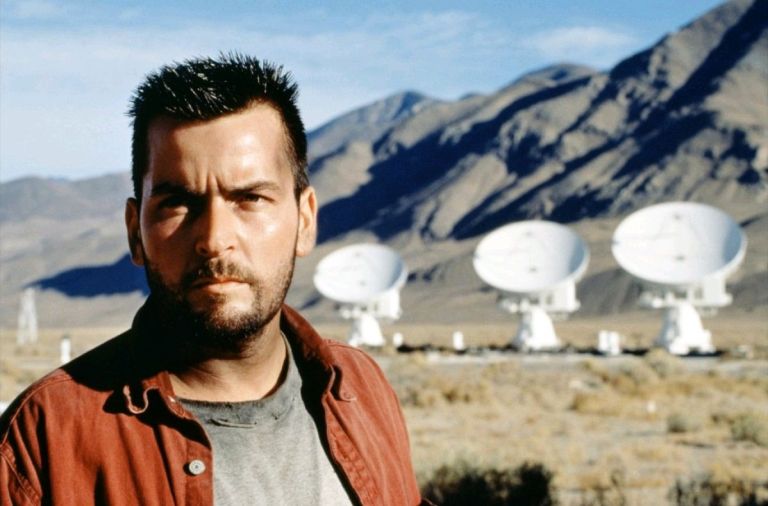
A sci-fi horror movie in which radio astronomer Zane Zaminsky (Charlie Sheen) is fired from SETI after discovering an extraterrestrial radio signal. Blacklisted from the scientific community, Zane continues his research in a makeshift telescope array in his attic. His findings lead him to Mexico where he meets a climatologist who helps him discover that global warming might not be a man-made phenomena, but the result of extreme pollution caused by secret underground bases for extraterrestrials. Zane then attempts to share this information with the world while being chased by NASA agents.
The Day After Tomorrow (2004)
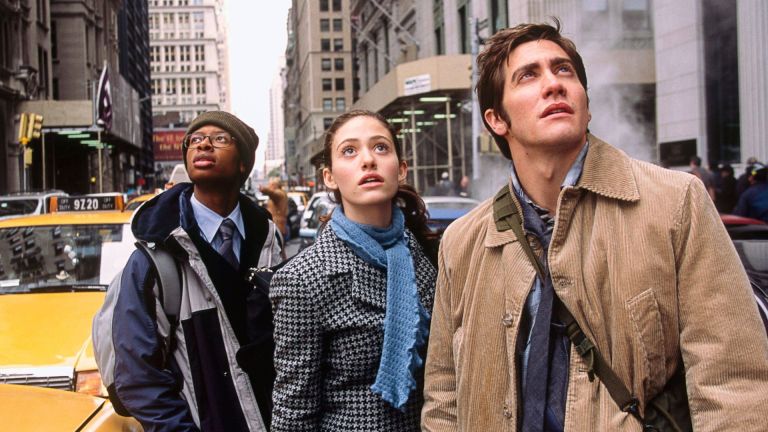
A sci-fi disaster film starring Dennis Quaid and Jake Gyllenhaal as father and son Jack and Sam Hall. Jack is a paleoclimatologist whose research shows that climate change could result in a new ice age for Earth. While Sam is on a school trip to New York City, Jack’s prediction comes true at an alarming speed with the sudden descent of a global superstorm. Sam and his friends try to survive a storm surge and subzero temperatures by holing up in the New York Public Library. After pleading his case in Washington DC, Jack plans a daring mission to rescue his son.
Children of Men (2006)
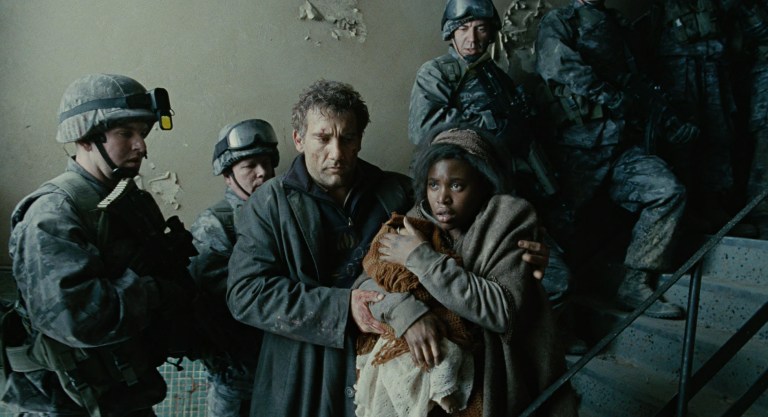
Human-caused climate change leads to worldwide poverty and infertility in this dystopian action thriller set in 2027. Refugees swarm the United Kingdom even though it is a police state, as it is one of the few surviving civilizations. Cynical Theo (Clive Owen) takes on the task of transporting a refugee who is the only pregnant person in the entire world.
The Last Winter (2006)
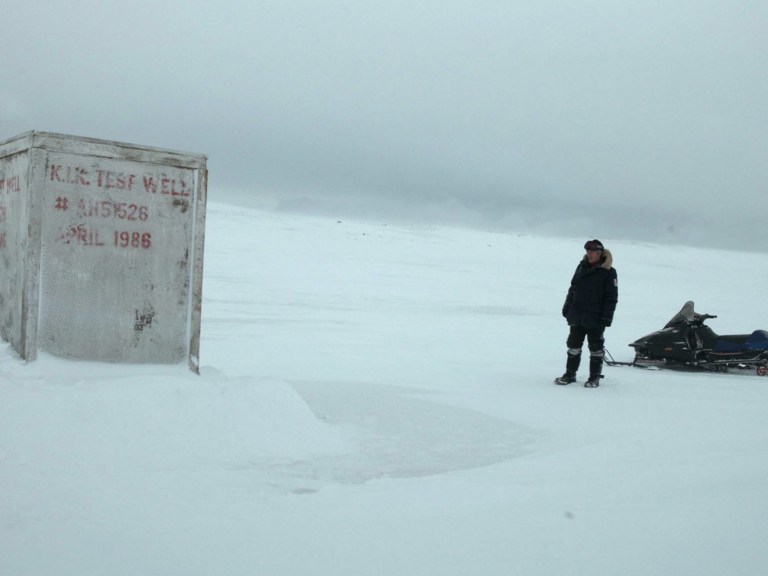
A rookie oil worker in Alaska, Maxwell (Zach Gilford), has a disturbing paranormal experience that convinces him to tell environmental scientists to warn the public about the drilling operation. While trying to capture video evidence of the phenomena, Maxwell is killed by an unseen person and his death and “hallucinations” are blamed on a gas leak. Chaos breaks out among the remaining oil workers and scientists and more deaths occur. One researcher theorizes that human abuse of the Earth has caused it to fight back with preternatural forces like the mythological Wendigo.
The Happening (2008)
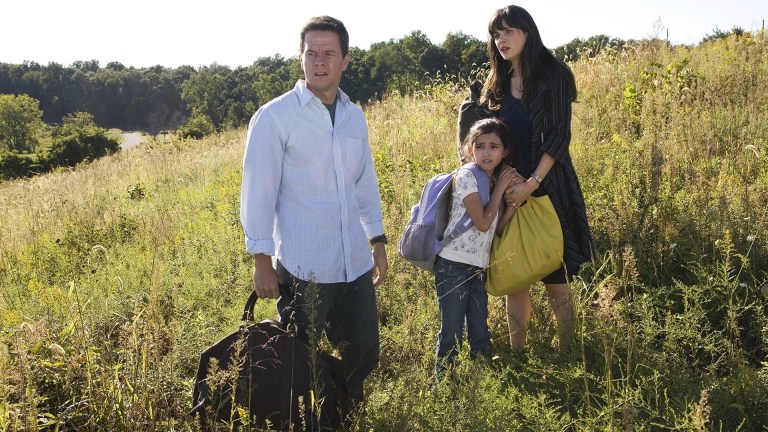
A mysterious wave of suicides in New York City quickly spreads across the American Northeast. Elliot and Alma Moore (Mark Wahlberg and Zooey Deschanel) leave Philadelphia on a train and end up in the Pennsylvania countryside, trying to escape whatever is causing the suicides. They take shelter at a rural farmhouse and hope to survive the epidemic.
The Thaw (2009)
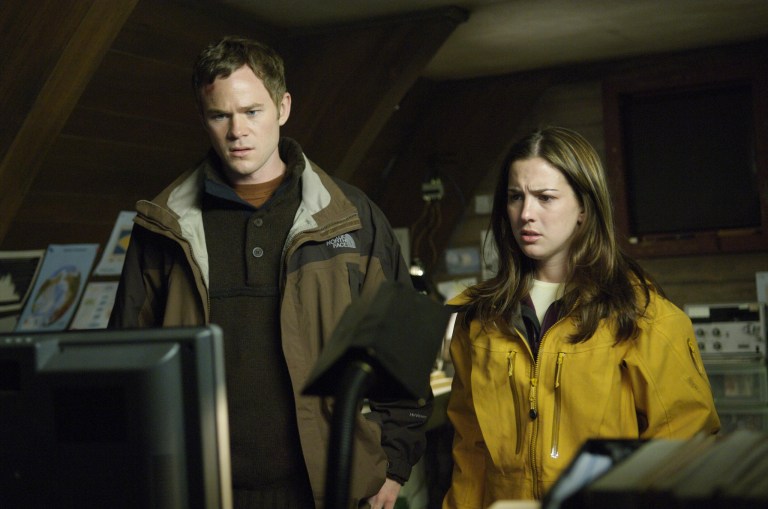
A sci-fi horror thriller featuring Val Kilmer as Dr. David Kruipen, a research scientist worried about the effects of global warming. After uncovering a wooly mammoth in the Canadian arctic, David and his team become ill. When David’s daughter Evelyn (Martha MacIsaac) arrives, she finds herself trapped at the remote research station while a prehistoric parasite causes infected hosts to act out violently.
Hell (2011)
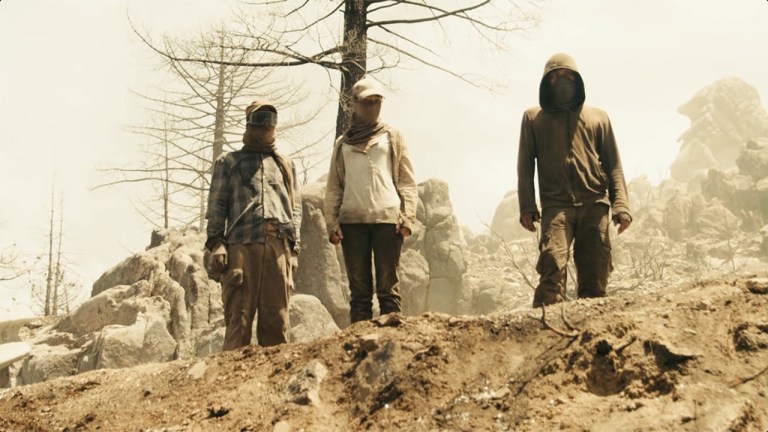
A German-Swiss post-apocalyptic film set in Germany in 2016, after the atmosphere has been destroyed and Earth’s temperatures have risen by 10 degrees Celsius (50 degrees Fahrenheit). A group of survivors travel by night because daylight is so hot it is deadly. They search for food and water while trying to avoid other survivors for fear of hostility.
The Colony (2013)
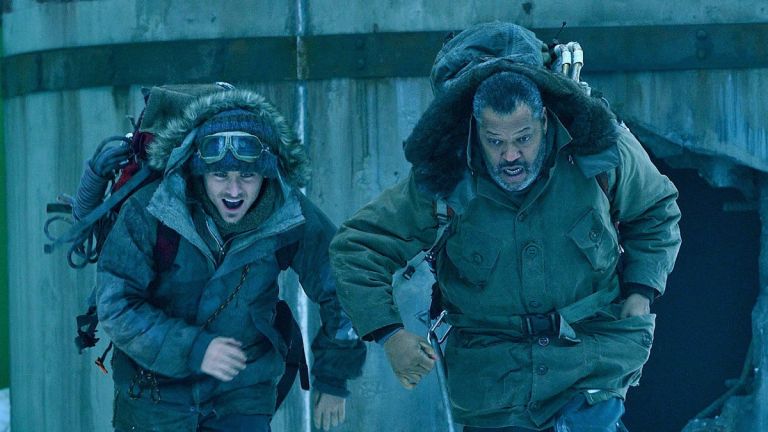
A post-apocalyptic sci-fi action film starring Laurence Fishburne, Kevin Zegers, and Bill Paxton. The film is set in 2045 when human attempts to reverse climate change has resulted in a new ice age. In order to survive the cold, humans live in colonies in underground bunkers. After receiving a distress call from another colony, a group of survivors travels there and discovers the camp has been massacred by cannibals.
Snowpiercer (2013)
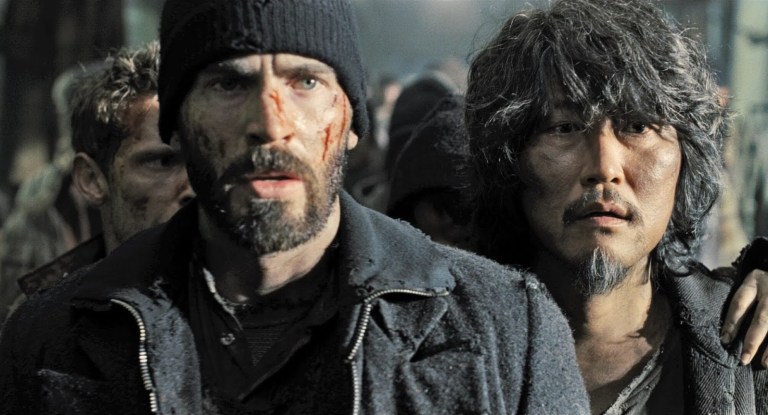
A post-apocalyptic sci-fi action movie co-written and directed by Bong Joon-ho. In 2031, years after a failed attempt to reverse climate change resulted in an ice age, human survivors live on a constantly looping train, Snowpiercer. Wealthy survivors live most comfortably in first class and poor survivors live crowded in squalor and policed by armed guards. The film follows the poor, led by Curtis Everett (Chris Evans), as they revolt by trying to take over the engine room in order to improve their living conditions. The movie and the French comic it is based on were made into a television series in 2020.
First Reformed (2017)
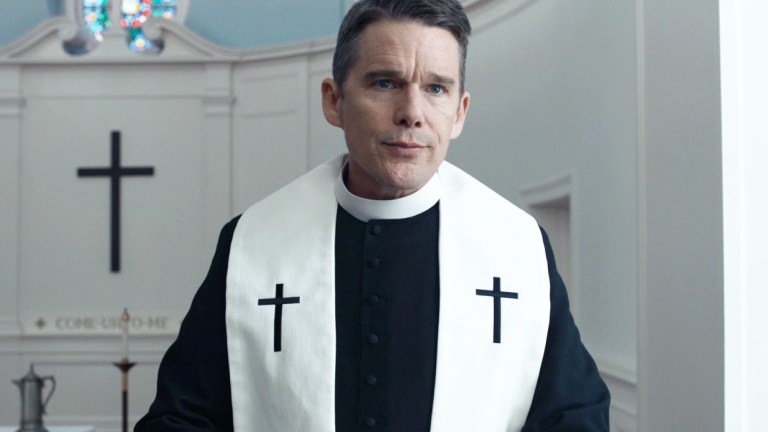
A psychological drama starring Ethan Hawke as Ernst Toller, the mild mannered pastor of a historical church who is privately struggling with his faith. Toller is asked to counsel a distressed environmental activist and becomes radicalized after going through his research. As Toller’s colleagues prepare for a large 250th anniversary celebration for the church, the pastor considers using terrorism to send a message.
Godzilla: King of the Monsters (2019)
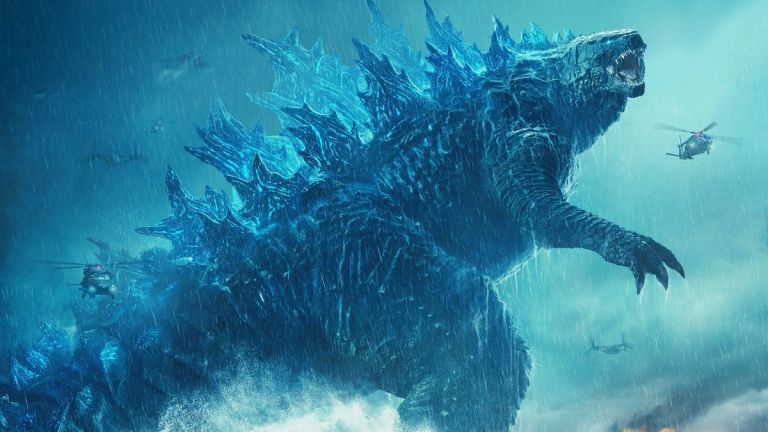
This monster movie is the 35th film in the Godzilla franchise. While all of the American/MonsterVerse Godzilla movies contain environmental themes, King of the Monsters is more directly about climate change. The film follows eco-terrorists who believe the Titans should be free in order to restore the planet to its natural state. The monster/Titan Ghidorah can be seen as an allegory for climate change just like how the original Godzilla can be seen as an allegory for nuclear war.
Don’t Look Up (2021)
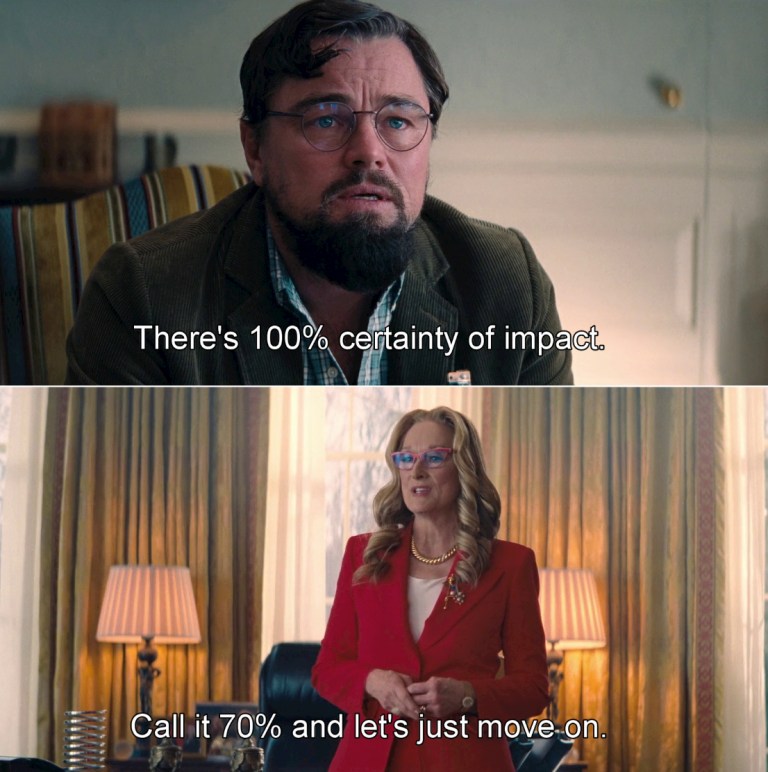
An apocalyptic black comedy film about two scientists (Leonardo DiCaprio and Jennifer Lawrence) who discover a comet that will collide with Earth in six months, resulting in global extinction. Although the discovery is verified by NASA, the scientists are unable to get political leaders, the media, or even regular citizens to accept the truth. Self-interested politicians go so far as to create a “Don’t Look Up” campaign to discourage citizens from seeking out the truth themselves, hence the film’s title.
This movie came from my burgeoning terror about the climate crisis and the fact that we live in a society that tends to place it as the fourth or fifth news story, or in some cases even deny that it’s happening, and how horrifying that is, but at the same time preposterously funny.
Adam McKay, writer/director of ‘Don’t Look Up’
How to Blow Up a Pipeline (2022)
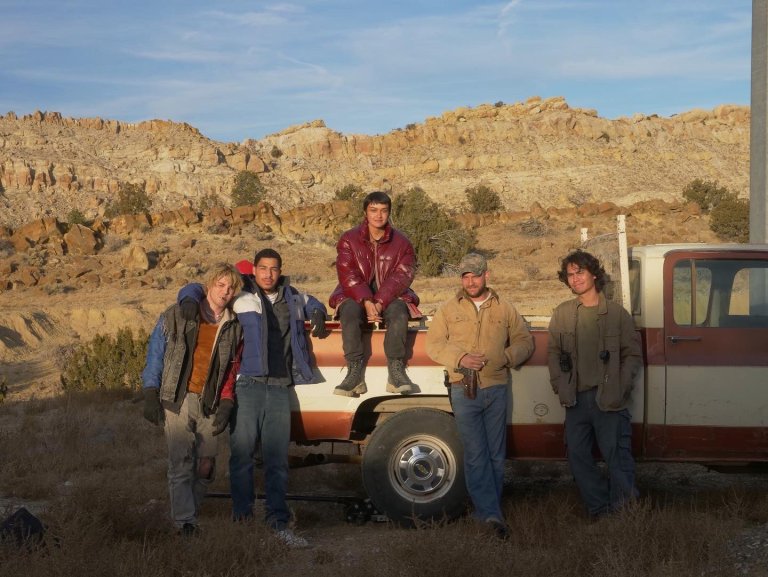
An “eco-terrorist thriller” about a diverse group of people dealing with the effects of pollution and the oil industry who decide to take radical action. Believing that non-disruptive protests will never change people’s minds enough to impact the industries that take human life through pollution and climate change, the group plans to build explosives and blow up a section of an oil pipeline in West Texas. The film is inspired by Andreas Malm’s nonfiction book of the same name which argues that peaceful protests (nor climate fatalism) will not deter an impending ecological collapse.
Humane (2024)
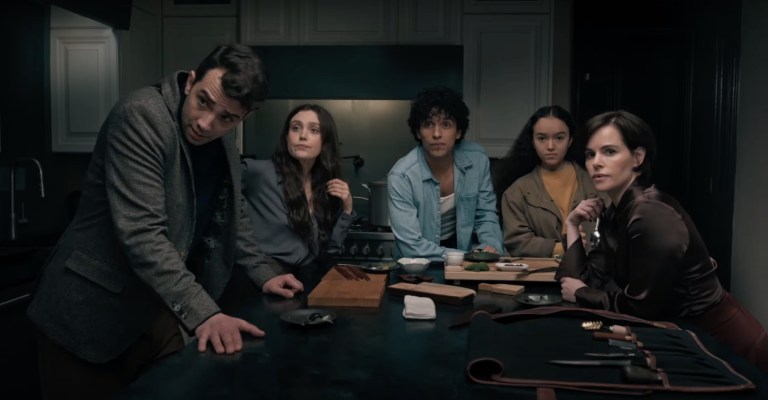
This horror thriller is set a few months after a global economic collapse caused by climate change. Nations around the world to pledge to reduce their populations by 20%. As the U.S. debates “conscription” to solve this problem, one wealthy family gathers for dinner, where an important decision will be made.
More climate change movies:
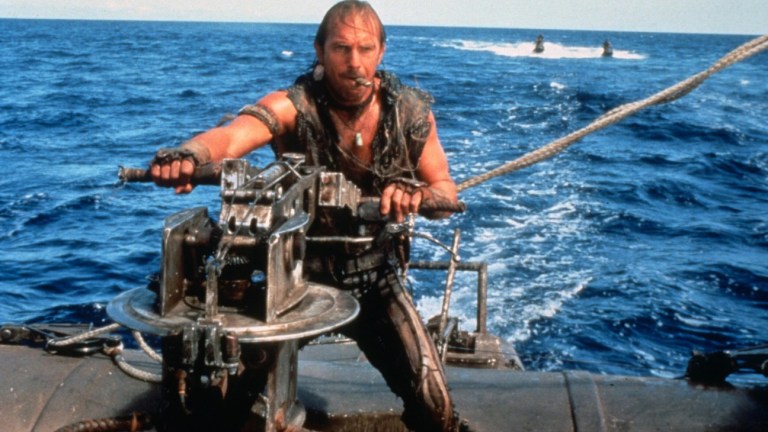
Blade Runner (1982) sci-fi film directed by Ridley Scott and set in a future 2019 where climate change causes constant rain in southern California. In 2017’s sequel, Blade Runner 2049, climate change has advanced enough that sections of Los Angeles are now underwater.
Waterworld (1995) A post-apocalyptic action movie that imagines a future world that is (almost) entirely water as a result of rising sea levels.
A.I. Artificial Intelligence (2001) a Steven Spielberg sci-fi film set in a future where climate change has drastically reduced the world’s population.
The Day the Earth Stood Still (2008) an alien invader is trying to save Earth from humanity’s destruction of Earth.
Birdemic: Shock and Terror (2010) a romantic thriller-horror movie inspired by both Alfred Hitchcock’s The Birds (1963) and An Inconvenient Truth (2006).
Sharknado (2013) a New York Post article argues that this bonkers shark hurricane movie could actually happen in real life as a result of climate change.
Interstellar (2014) destruction of the environment is what leads to the mission to find a new planet for humans.
Into the Storm (2014) a found footage disaster movie that Forbes called “Twister for the climate change/YouTube era“.
Mad Max: Fury Road (2015) set in a post-ecocide desert wasteland.
Downsizing (2017) a sci-fi comedy/drama starring Matt Damon as a man who undergoes an environmentally friendly experimental procedure that shrinks him so that he can reduce his carbon footprint and live in relative luxury.
Geostorm (2017) a lackluster sci-fi disaster movie that tries to recapture the magic of The Day After Tomorrow (2004).
Aniara (2018) a Swedish sci-fi drama set on a spaceship carrying refugees from Earth to settle on Mars.
Reminiscence (2021) a sci-fi thriller set in a near future where climate change has flooded Miami and caused most of the population to live at night.
The Trick (2021) a biographical thriller that tells the story of Philip Jones, Director of Climate Research at the University of East Anglia who was the victim of cyberterrorism following the hacking of a server at his Climatic Research Unit (CRU).
Acid (2023) a French disaster film that follows a family on the run from acid rain caused by climate change.
Extrapolations (2023) an anthology drama series that depicts the effects of climate change for an interconnected (and star-studded) ensemble cast beginning in 2037 and ending in 2070.
Last Sentinel (2023) a sci-fi thriller set in the near future where climate change causes sea levels to rise, leaving only two continents and a global fight for control over the remaining land. A small group of soldiers staffing a remote military base in the ocean wait for relief from whoever wins the war.
Further reading:
- 11+ Tornado Movies — The Violence of Air
- 11+ Best Survival Horror Movies
- 11+ Horror Films That Will Make You Consider Vegetarianism
